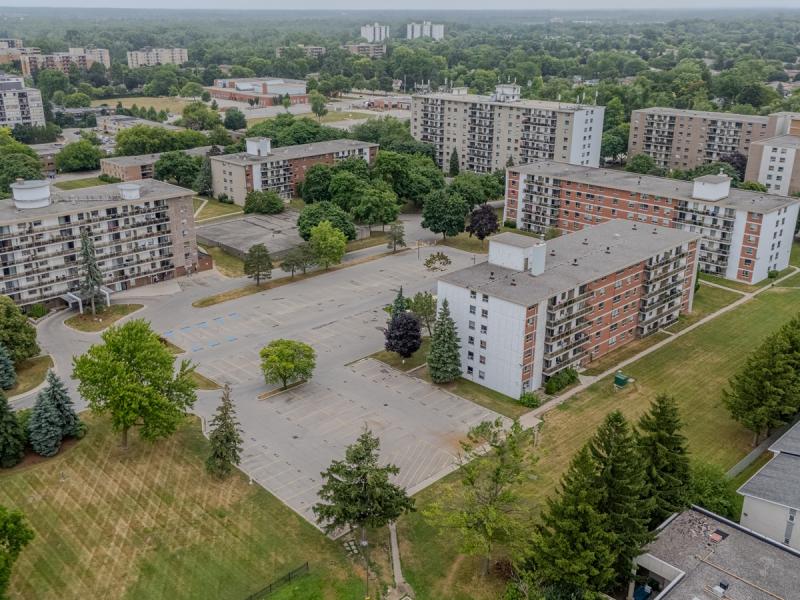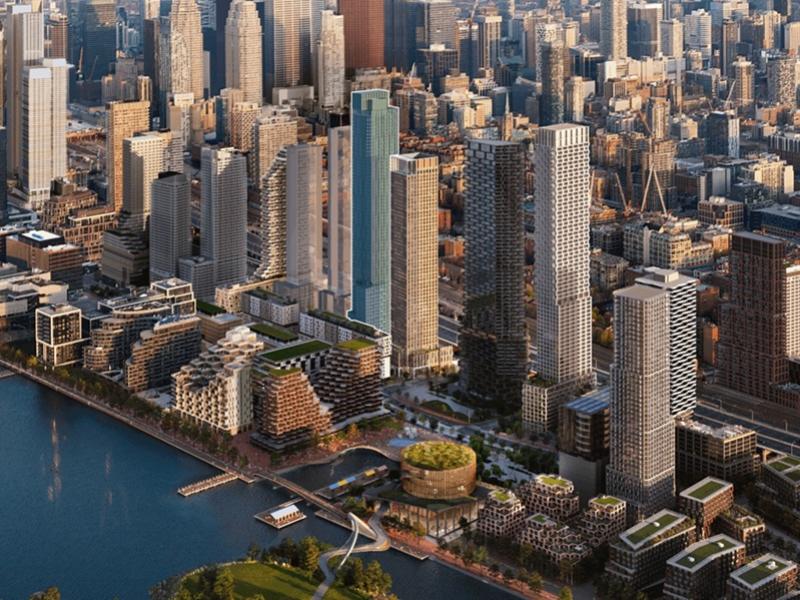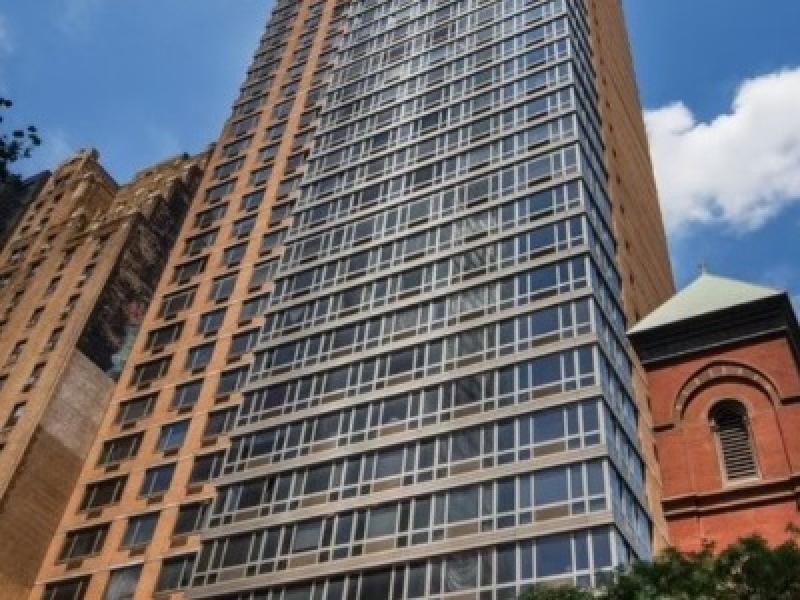
2140 Meadowpine in Mississauga is part of a portfolio of GTA industrial properties acquired by LaSalle Investment Mgmt. and an unnamed partner. (Courtesy Lasalle)
LaSalle Investment Management Canada’s LaSalle Canada Property Fund (LCPF) has acquired 21 industrial properties in Mississauga with an unnamed European investor.
LaSalle Canada chief executive officer John McKinlay told RENX his company has been trying to educate global investors about the underlying fundamentals of this market and the opportunities it presents. He said many of them are surprised about its size and strength, particularly in the Greater Toronto Area (GTA).
LaSalle Canada will be responsible for asset management and leasing of the newly acquired portfolio.
“This is a firm time horizon for both of us in terms of a value-add play that ends in four to five years,” said McKinlay. “One of the things that the partner really liked, and has had experience with us before, was our focus on ESG (environmental, social and governance) and how we create value levers.”
McKinlay believes environmental improvements and initiatives with the properties will improve their marketability and help LaSalle and its partner sell them to long-term holders.
Industrial portfolio details
The almost 810,000-square-foot portfolio was acquired from a private family, which built most of it in the 1980s and ’90s and continued to manage it until the sale.
Financial details weren’t disclosed, though McKinlay said the price was below replacement cost.
“The location and the strength of the Toronto market and the land-constrained element of the Greenbelt certainly is driving the bus in terms of the value enhancement in terms of what we’re bringing to the table.”
The portfolio is 98 per cent leased, with well-maintained mid-bay buildings with 18- to 24-foot clear heights that range in size from 18,000 to 81,000 square feet. The properties are designed to accommodate a wide range of uses, including stand-alone buildings for single tenants.
LaSalle Canada has been contemplating making industrial condominiums part of its industrial real estate holdings, as McKinlay said the per-square-foot price they can achieve is compelling, but he doesn’t think these buildings fit the bill for conversion.
Rents for the 21 properties are 60 per cent below the market rate and the weighted average lease term is just 1.5 years.
“We can actually execute on the strategy and take advantage of below-market rents and the acceleration that we’ve seen in industrial rents over the last few years,” said McKinlay.
The properties have more than 80 diverse tenants, which McKinlay said “makes us feel very good in terms of credit risk and the ability to negotiate the deals.”
Strong GTA industrial market
The GTA is North America’s third-largest industrial market and is land-constrained due to protective zoning in the surrounding Greenbelt area. Its industrial vacancy rate is below one per cent, the lowest of any market on the continent.
Rents have experienced a compound annual growth rate of 20 per cent during the past three years, outpacing the eight- to 12-per cent growth of top American markets over that same period.
“The west side of Toronto is pretty much the best industrial node in North America right now,” said McKinlay.
The newly acquired properties are clustered in three groups in Mississauga, which will provide synergies and efficiencies in terms of management, leasing and marketing.
LaSalle and the LCPF
LaSalle Investment Management managed approximately $78 billion US worth of assets in private and public real estate property and debt investments at the end of 2021. Clients include public and private pension funds, insurance companies, governments, corporations, endowments and private individuals from around the world.
LaSalle Canada has offices in Toronto and Vancouver and has executed more than $7 billion in real estate transactions since 2000.
The LCPF was launched in 2017 as an open-ended fund targeting commitments from Canadian and global institutional investors to acquire core properties in major Canadian markets. It aims to take advantage of mispriced office, industrial, mixed-use, retail and multiresidential assets.
The LCPF acquired more than $500 million in assets last year and will continue to be quite active in 2022, particularly in off-market deals, according to McKinlay.
It recently made an off-market purchase of a new industrial building, with a long-term tenant, in Montreal that LaSalle intends to hang on to for the long term.
McKinlay plans to go to Europe to raise more capital for the LCPF next month and hopes to follow that with a similar trip to Middle Eastern countries.
The LCPF’s industrial weighting is about 29 per cent with these latest acquisitions. While it will likely continue to add, McKinlay said that figure probably won’t go above 35 per cent.
Increase rental apartments within LCPF
Purpose-built rental apartments now comprise 11 per cent of the LCPF’s asset mix, and McKinlay would like to see that increase to from 15 to 18 per cent. LaSalle Canada plans to continue developing multiresidential rentals in the country’s major markets.
The strategy is to take advantage of the quality and quantity of immigrants that Canada will continue to bring in who will need places to live.
“The way we look at the weightings and the geographic weightings is more of a long-term thesis,” said McKinlay. “We don’t want to yo-yo in terms of the way we react to the short-term market.
“It’s still a disciplined, long-term diversified portfolio that should be weighted appropriately across asset classes and all six of our major markets. That’s what our investors signed-on for and that’s what our strategy remains true to — not a two-year, but a 10-year mindset.”











